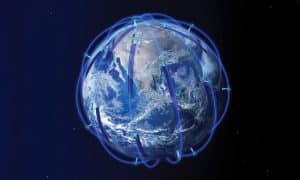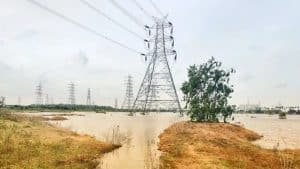Barbenheimer, a portmanteau of ‘Oppenheimer’ and ‘Barbie’, is the latest internet trend.
While the two namesake movies, one a biopic of physicist J. Robert Oppenheimer, the ‘father of atomic bomb’, and the other a fantasy tale of the eponymous doll, have nothing in common, the seamless juxtaposition of grim reality and innocuous fantasy, has got minds racing.
Nolan’s recent statement on the movie being a warning about Artificial Intelligence, which he regards as more baleful than nuclear power, will yet again draw attention to what I term AI Apocalypse Now anxiety.
AI Peril?
Dubbed as the auteur’s masterpiece, ‘Oppenheimer’ is a silver-screen adaptation of the Pulitzer-winning American Prometheus: The Triumph and Tragedy of J. Robert Oppenheimer by Kai Bird and Martin J. Sherwin.
Overlooking the morbid fears of AI, and Oppenheimer’s racked conscience after ‘Fat Man’ was dropped on Nagasaki — leading to his refusal to helm the Hydrogen Bomb project — there is something innate about the teleology of innovations, and epistemic institutional limitations.
Nolan’s comparisons of AI with thermo-nuclear energy, and his ominous message, will certainly have a massive resonance, as it comes at a time when leading scientists and entrepreneurs are already expressing dismay about AI.
What differentiates Nuclear from AI is the Catch-22 of AI regulations, which is the highly decentralized and self-amplifying nature of AI, and to a large extent, the futility of regulations that can’t match the exponential pace of innovation.
Enduring Myth
Illustrative here is the Greek myth of Prometheus, a Titan who stole fire from the Gods to give it to mankind, enabling the progress of civilization.
For his defiance, Prometheus was chained by Zeus to a rock where an eagle feasted on his liver, which grew every night. The harrowing ordeal represents the complexity of the human condition.
Prometheus is a central figure in the Western civilization’s narrative of progress as well as a cautionary reminder of the constraints of knowledge, looming uncertainty, and invisible fetters.
The profound impact of the Promethean myth on the West is grasped from the fact that Karl Marx as well as Ayn Rand have hailed the Greek Titan as the glowing emblem of human will, knowledge, endeavor, striving, and innovation.
But at the same time, progress is seldom unidirectional, path-dependent, and deterministic. It is often transplanted with the seeds of its demise.
With de-growth and climate transition in vogue, the UN Security Council held a meeting on AI risks, highlighting the Promethean threshold of AI whose blurry lines we are afraid to cross.
High-Risk Scenario?
The Chinese Ambassador to the UN called AI a ‘double-edged sword’, adding, “whether it is good or bad, good or evil, depends on how mankind utilizes it, regulates it and how we balance scientific development with security”.
He has a valid point, and so far, so good. But that’s exactly where the Promethean Trap lies. The inability to fathom what lies ahead, and compute the unintended consequences of any breakthrough that transforms the world forever.
The Greek word for a fatal flaw leading to a protagonist’s downfall is Hamartia. The debate over whether AI would be a Frankenstein monster or a subservient handmaiden reeks of escapist self-indulgence. Neither exuberance nor premonition would take us anywhere.
There is a need to first get at the root of complex phenomena and then devise impactful solutions.
Are we entering into an epoch of AI Doomsday? Not Yet.
In ‘Birth of Tragedy’, Friedrich Nietzsche says real tragedy occurs when ‘order’ and ‘chaos’ indistinguishably merge into each other. As of now, we neither have AI-imposed order, nor anarchy let loose by it.
Disclaimer: Views Expressed are Author's Own. Geospatial World May or May Not Endorse it









